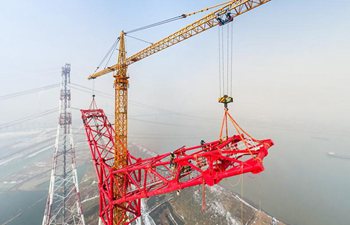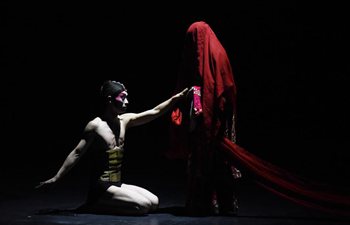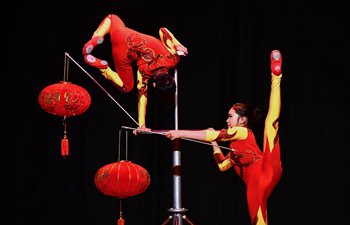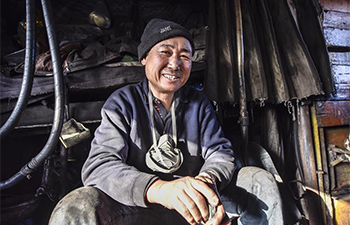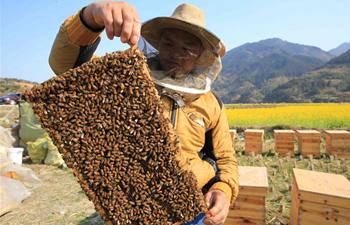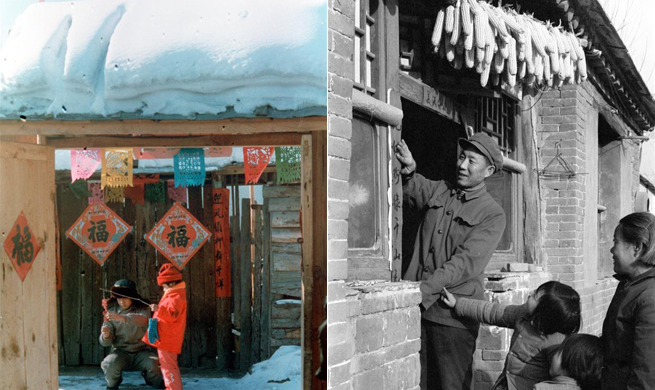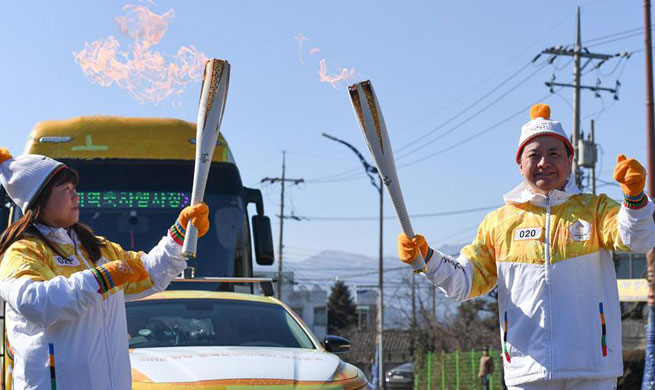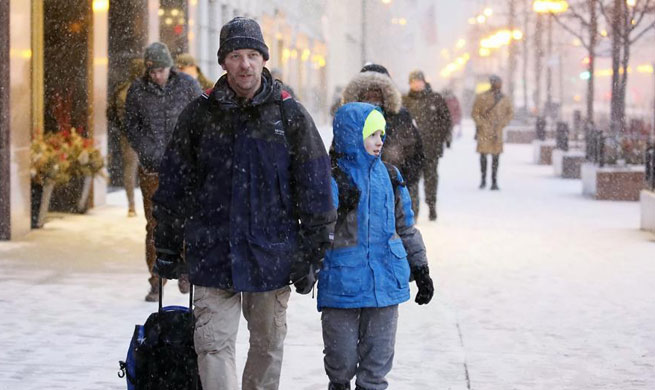ZHENGZHOU, Feb. 6 (Xinhua) -- Public bathhouses are seeing more customers in the rural areas of central China as migrant works return home to celebrate the Spring Festival.
Although the Lunar New Year is still more than one week away, Zhang Shumei's bathhouse has seen an increasing number of customers.
Zhang, 58, runs the Dama Bathhouse in Dama Township, Weishi County, in central China's Henan Province. The bathhouse includes 27 shower rooms and two large communal pools in an area of 350 square meters.
"Business is the best near the Spring Festival, as people come here to wash away bad luck and prepare for good fortune in the new year," she said.
The tradition is called Xifulu in Chinese, or "wash for happiness and good fortune." It is one of the traditional events in Dama, where people from all walks of life go to public bathhouses with their families days before the Lunar New Year, wash away ill fortune of the past year, and usher in a good new year.
Spring Festival, or Chinese Lunar New Year, falls on Feb. 16 this year. Hundreds of millions of Chinese will return to their hometowns for family gatherings.
About 2.98 billion trips are expected to be made during the 2018 Spring Festival travel rush between Feb. 1 and March 12, approximately the same figure as last year, according to China's top economic planner.
Zhang's bathhouse opens at 8 a.m. and closes until 11 p.m. Since December, business there has been "simply great."
"Many migrant workers have spent the year working hard in the cities, and when they return home for Spring Festival, they bring their families to the bathhouse," she said.
Many people have left rural China for jobs in big cities. According to official figures, Henan has almost 30 million migrant workers. In the last month on the lunar calendar each year, migrant workers return home from developed areas.
The last eight days of the lunar year typically are the busiest for Zhang, and customers have to wait in line to shower, she said. Zhang's office covers 46 square meters, where customers usually pay their bill, change shoes and wait for their turn.
"It is common to see more than 200 people waiting in line in the days leading up to the Spring Festival," she said.
Sun Zhenchao, 25, is a migrant worker who returned home to Dama on Feb. 1. Last year, when he came to Zhang's bathhouse, there were 125 people waiting ahead of him. So this year, he brought his family at noon, when there were less customers.
"I have had a great year," Sun said. "But I hope it will be even better next year."
Zhang's previously used coal-fired boilers to heat water. But as the government has called on the public to join the fight against air pollution, all coal-fired boilers were replaced with electric ones.
In 2017, Zhang spent 50,000 yuan (7,971 U.S. dollars) purchasing the electric boilers.
"In the past, I had to employ two workers to take care of the coal-fired boilers," she said. "Now with the electric ones, I can save up to 6,000 yuan per month."
The electric boilers are quite convenient, she said. "You just have to press a button and there is hot water."
Zhang said she expects to receive about 6,000 customers before the Spring Festival, a year-on-year increase of 10 percent.
"I wish everyone a great new year," she said.




